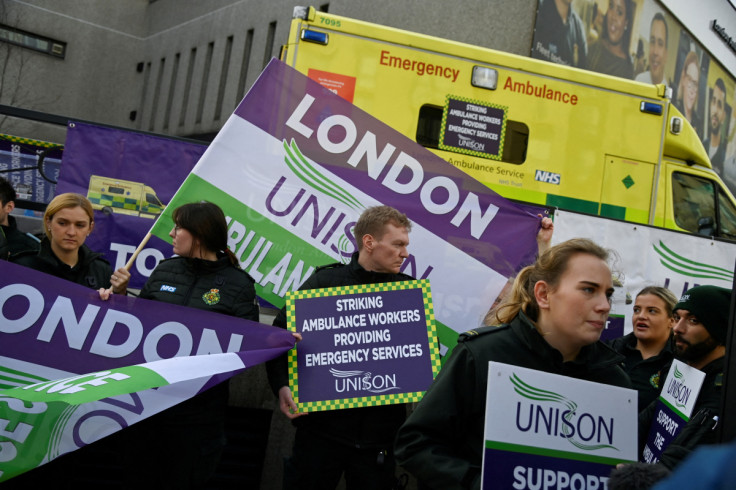NHS Strike Row Intensifies as BMA Threatens to Withdraw Emergency Cover
NHS is caught in the crossfire of a bitter dispute between the NHS leadership and the BMA. The contention arose after the NHS accused the BMA of leveraging a threat to withdraw "voluntary" emergency cover unless hospitals cancelled planned surgeries.

In a contentious turn of events, the National Health Service (NHS) in the United Kingdom finds itself embroiled in a fierce strike row with the British Medical Association (BMA), escalating tensions and causing disruptions in healthcare services across the country.
The dispute has reached a critical juncture as the BMA, which is currently staging a three-day coordinated walkout, has threatened to withdraw "voluntary" emergency cover unless hospitals cancel planned surgeries.
This development has sent shockwaves throughout the healthcare system, leaving patients in the lurch and raising questions about the state of the NHS.
The core of the disagreement lies in the interpretation of the BMA's "legal strike mandate". According to a letter seen by the Health Service Journal (HSJ), the doctors' union asserts that its members have the right to undertake a full walkout, including emergency services.
The BMA regards the concept of providing "Christmas Day cover" as a "voluntary" exemption, granted by the union. In response, NHS leaders have accused the BMA of implying that unless hospitals confirm the cancellation of elective surgeries, the promised Christmas Day cover would be withdrawn in favour of a full walkout.
The strike action began at 7 a.m. on Monday, with consultants and junior doctors participating in the unprecedented three-day strike. While emergency care services remain operational, the strike has significantly disrupted other essential healthcare services, leading to widespread concerns about patient welfare.
The consequences of this strike action are reverberating throughout the NHS, with an estimated 2 million outpatient appointments and surgeries being cancelled, double the official figures according to hospital administrators. The NHS Confederation has expressed its belief that the actual number of care sessions disrupted by staff walkouts is far greater than the official figure of 1 million.
Many hospitals have resorted to not scheduling any patients on strike days to avoid the need for rescheduling, exacerbating the strain on the healthcare system.
The previous industrial action earlier this month resulted in the rescheduling of nearly 130,000 inpatient and outpatient appointments, causing distress for patients who have had their treatments and appointments postponed multiple times.
These disruptions have contributed to the NHS grappling with a record-breaking 7.7 million people currently waiting for hospital treatment, thwarting Prime Minister Rishi Sunak's ambition to reduce the waiting list this year.
Health Secretary Steve Barclay expressed deep disappointment and concern over the ongoing strike, urging the BMA to end the industrial action. However, BMA Chairman Prof. Phil Banfield defended doctors, asserting that they did not want to be on strike but aimed to be recognised as highly skilled medical practitioners.
Public opinion on the strike is divided, as evidenced by recent polling data from YouGov. For junior doctors, 56 per cent of respondents expressed support, while 37 per cent were opposed. For senior doctors, 42 per cent received support, with 50 per cent opposed. The results indicate a mixed sentiment among the public, reflecting the complexity of the issue.
The labour dispute extends beyond England, with doctors in Wales currently being balloted for potential industrial action and preparations underway for similar action in Northern Ireland by the BMA. The situation highlights the widespread frustration within the healthcare service regarding the government's handling of pay disputes.
Former NHS England chief executive Sir David Nicholson publicly expressed his concerns, urging the government to find a resolution to the ongoing crisis. He emphasised the urgency of the matter by stating that it is time for the government to "get its finger out".
A new survey conducted by Walnut Unlimited for the BMA revealed that a significant portion of voters in England blame the government, rather than striking doctors, for the soaring NHS waiting lists. The survey found that 42 per cent of respondents believed the government was primarily responsible, while only 15 per cent attributed blame to striking doctors.
Another 35 per cent held both parties equally responsible. These findings indicate that the public may be growing impatient with the government's handling of the NHS and its attempts to deflect blame onto healthcare professionals.
© Copyright IBTimes 2025. All rights reserved.






















